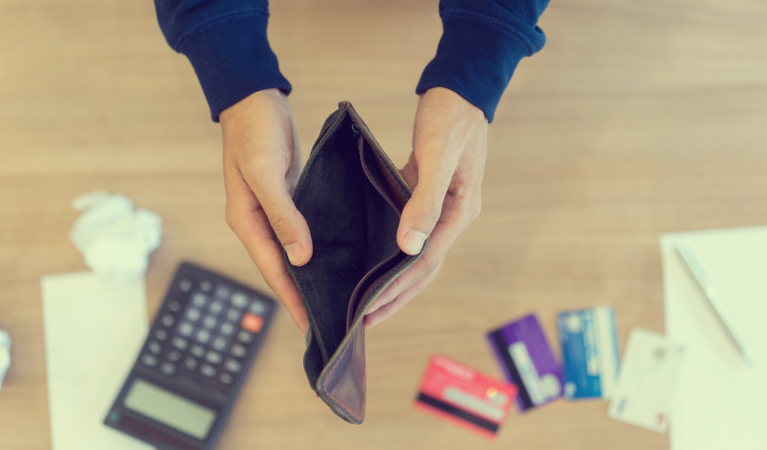We’ll never ask you to pay us a fee before disbursing your loan. If affected, please contact us & learn more here.
Late repayment can cause you serious money problems. For independent help, please go to www.moneyhelper.org.uk

Aug 30, 2022
We’ve all heard the term bankruptcy. But what does it actually mean? And is it always a bad thing? Isn’t it sometimes a way of cancelling out all your debts and starting again from scratch?
In this article we take a quick look at:
Bankruptcy is a legal status. It indicates that a person is unable to repay the money they owe.
Bankruptcy should be seen as a last resort, rather than a quick fix, as you will see from the rest of this article. It is well worth looking at alternatives such as a Debt Relief Order or an Individual Voluntary Arrangement – both of which involve getting help from an insolvency practitioner to repay your debts.
There are three ways that you can become bankrupt:
If you find yourself in the position where you are completely unable to pay what you owe, you can declare yourself bankrupt. In England and Wales you have to do this online and it costs £680. There is a different process for Scotland and Northern Ireland.
A creditor can apply to make you bankrupt if you owe them over £5000 and do not seem either willing or able to pay your debts. However, before things get to this point, they have to try other legal ways – such as a statutory demand – to get you to pay your debt.
An IVA – Individual Voluntary Arrangement – is an arrangement with your creditors to gradually repay some of your debts. It is made with the help of an insolvency practitioner, and if you do not make the required repayments, the practitioner can declare you bankrupt.
If you don’t want to be made bankrupt, you may be able to oppose your bankruptcy petition.
If you are declared bankrupt by any of the above means, what actually happens next?
The three main consequences of being made bankrupt are:
When you are made bankrupt, a trustee will be appointed to oversee your finances. The trustee will be either a court official – usually a receiver – or an insolvency practitioner. They have the right to use any of your assets to pay your debts. This includes:
Your bank accounts will be frozen but the trustee may release funds for urgent needs such as food. You will also usually be allowed to keep any items needed for your work, and also a few essential household items, such as clothing, bedding or furniture.
However, there should be no direct contact from creditors. All communication related to your finances must now go through the trustee.
Anyone declared bankrupt is also subject to certain restrictions for the duration of their bankruptcy. You will not be able to:
The Individual Insolvency Register holds details about bankruptcies in England and Wales. It can be searched by anyone. Your details will usually be removed from the register within 3 months of your bankruptcy ending.
Your bankruptcy will normally end automatically after 12 months of being made bankrupt. However, it can be longer in some circumstances, for example if you have not been cooperating fully with your trustee.
You can also apply to cancel your bankruptcy at any point if any of the following apply:
Even after you are out of bankruptcy, the fact you have been bankrupt will remain visible on your credit report for at least 6 years. This may mean that you struggle to borrow money, as some lenders may be cautious about lending to you.
However, most people find that their credit score gradually improves over 12-18 months after bankruptcy if they are careful with their finances and put in the effort to do this. Check out our article How to improve your credit score this autumn.
At Loans 2 Go we understand that your financial situation can be impacted by various other circumstances, and that things can improve over time. So we are willing to consider lending to you even if you have previously been declared bankrupt. If you are in need of an emergency loan, why not see if Loans 2 Go would be able to help?
We hope that this article has helped you to understand more about bankruptcy and how to avoid it.
Do visit us here again soon for more financial and lifestyle tips from Loans 2 Go.